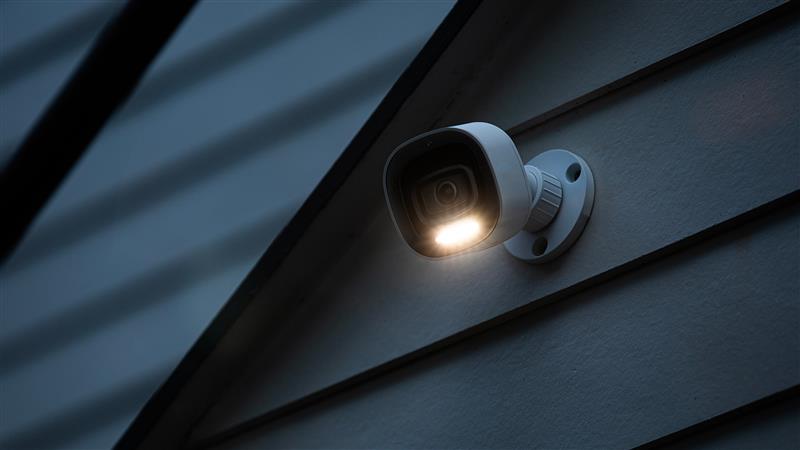Gearing up to sell your home? We rounded up everything you need to consider to get your house ready to sell.
When it comes time to sell a house, there’s more to it than just getting ready to move out, packing up your things, and moving into your new home. If you want to get the most value out of your home sale, you need to plan ahead of time so that you can list – and sell – at a price you’re happy with, without stressing yourself out in the process.
Below, we’ve compiled a preparing to sell your home checklist to walk you through getting your house ready to sell.
- Decide when to list.
- Research comps and decide on a list price.
- Create a marketing plan, especially if you are going the for sale by owner (FSBO) route.
- Get a pre-listing inspection.
- Make necessary repairs to your home.
- Invest in minor cosmetic changes and updates.
- Purge your belongings.
- Depersonalize your home.
- Deep clean your home and eliminate any odors.
- Stage your home.
- Get all your paperwork and documents together before listing your house.
- Prepare your security system for a move.
What to do Before Listing Your House
Before listing your house for sale, take some time to go through the following checklist in the month or so leading up to putting your home on the market.
Decide when to list.
You may not have much flexibility on when to list your house for sale, especially if you are moving for something specific such as a job or school, or if you’re already under contract on another house and need to move quickly. However, if you are able to choose when to list your house, take some time to think through all you’ll need to do to get your house ready to sell. You should also talk to your real estate agent, if you’re planning to work with one, and get their opinion on when the best time of year to sell your house is, and what specific day you should go on the market. They’ll have a good idea of market conditions and can provide advice to ensure you list at the optimal time. If you opt to do FSBO instead of working with an agent, make sure you do your research to determine the best time to sell a home in your area.
Research comps and decide on a list price.
Spend time examining your home’s comps to get a feel for what prices homes are listed for and selling for in your area, how the homes in your neighborhood compare to yours, and what you can learn from their listings. If you’re working with a real estate agent, they can help you consider all this and provide a price recommendation. Just don’t price your home too high, as your house may sit on the market for a while, and eventually, you may need to lower the price. Ideally, your house will sell quickly at a fair price.
Create a marketing plan, especially if you are going the FSBO route.
A good real estate agent will take care of the majority of the marketing for you, but if you choose to sell your house yourself, you’ll need to make a plan for how and when you will write a listing description, hire a photographer, advertise your listing, create a listing on MLS, manage showings and anything else that needs to be done to sell your home.
Get a pre-listing inspection.
Assess your home’s overall condition by hiring a licensed home inspector to complete a pre-listing inspection. This will give you a deeper insight into what issues your home has that may concern or scare off potential buyers, and give you the opportunity to take care of any known issues before listing your home.
Make necessary repairs to your home.
Work with licensed contractors to take care of any repairs that need to be done or issues that came up in your inspection. If you choose to forego a pre-listing inspection, consider repairing or replacing broken appliances, cracked or leaking bathroom fixtures, outdated or broken lighting and burnt out light bulbs (tip: use soft white LED bulbs instead of fluorescent lights), missing shingles and roof leaks, broken locks, squeaky doors or floorboards, crack or holes in the wall, and any other problems you are aware of.
Invest in minor cosmetic changes and updates.
Inexpensive changes and upgrades can have a great ROI in terms of both your home’s sale price and how long it takes to sell. If you aren’t sure what changes are worth doing, consider asking your agent or a trusted friend what you can do to improve your home. Updates you may want to make include giving the inside a fresh coat of paint, replacing the carpet, painting the front door and sprucing up the porch with a few plants and a welcome mat, pressure washing the sidewalk and the driveway, cleaning or painting the siding, mowing and edging the lawn, removing weeds, adding new flowers in landscape beds, and changing outdated hardware or light fixtures.
Purge your belongings.
What better time to declutter, purge, and donate your things than when getting your house ready to sell? This will get excess stuff out of your home, make your home look larger by giving the appearance of more space, and give you less to pack up and move into your new home. You want potential buyers to focus on your home and how beautiful and spacious it is, rather than on surfaces full of knick-knacks, overflowing cabinets, and disorganized closets.
Depersonalize your home.
When showing your home, you want every potential buyer who walks in the door to envision themselves living in your home, no matter how unlike you they may be in reality. For this reason, it’s important to eliminate anything personal in your home. Remove any unusual decorations that may be taste-specific, paint over bright colors with something more neutral in tone, remove family photos, and keep the home’s overall design as neutral as you can.
Deep clean your home and eliminate any odors.
Your home needs to be spotless when it comes time to list. Before listing your house, deep clean the entire home. Pay someone to clean the carpets or rent a steam cleaner, clean all windows inside and out, scrub and disinfect the bathrooms, polish the kitchen appliances, wipe down all surfaces, dust the baseboards, clean the blinds and light fixtures, and make sure the entire house is spotless. Pay special attention to anything that may be the source of odors, even ones you may not smell; remove litter boxes, wash or replace pet beds and toys, remove all pet hair along baseboards or under furniture, clean your garbage disposal, and knock out any other strange or unpleasant odors in your home.
Stage your home.
Staging a home may require removing some items. When you’re preparing to sell your home, rent a storage unit for extra furniture or other belongings that can come out of your house before you go on the market. You should remove any furniture taking up extra space that you don’t use often, make sure closets aren’t too full, and generally try to minimize the amount of stuff in your home. If you use a certain room of your house for something other than its intended purpose, (for example, using a dining room as an office), consider swapping the furniture so that potential buyers can see the room the way it was meant to be used. If any of your furniture creates a choppy flow or layout, it may be worth rearranging it. Ultimately, think through what looks best in your home, even if it’s not the most functional option for the way you actually live there.
Get all your paperwork and documents together before listing your house.
When you sell a home, you’ll need nearly every piece of house-related paperwork you’ve ever collected. Take the time to gather this together early so you have it ready to go when you need it. Look for warranties, renovation permits, invoices and receipts for repairs, land surveys, tax bills, utility bills, and anything else you think you may need. It’s also wise to get an estimate of your mortgage payoff amount before you begin to get your home ready to sell so that you have an idea of how much you’ll profit once it’s sold.
Prepare your security system for a move.
While you’re getting the rest of your house ready to sell, make sure you also take advantage of our CPI Movers Program. Just gives us a call at (866) 460-0745 with your moving date and new address to get started. We’ll provide tailored recommendations based on your move, then set up your new home to make sure your investment is protected.




